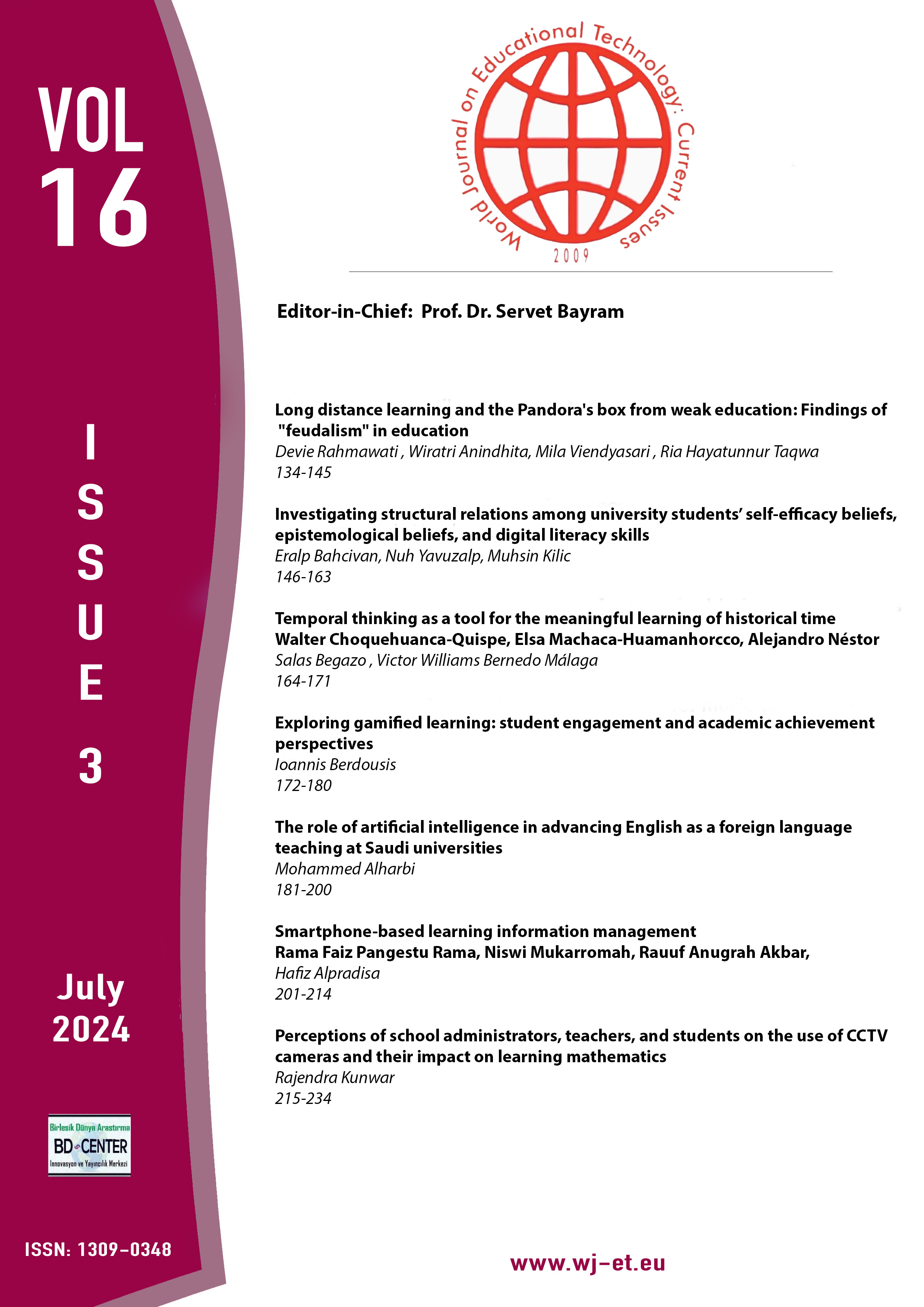Investigating structural relations among university students’ self-efficacy beliefs, epistemological beliefs, and digital literacy skills
Main Article Content
Abstract
This research study aimed to investigate the relationships among self-efficacy beliefs, epistemological beliefs, and digital literacy skills of university students who took courses through compulsory distance education throughout the COVID-19 pandemic. In this context, a structural equation model was proposed by reviewing the research studies in the literature. The proposed structural model was analyzed and discussed based on the literature. One thousand, six hundred and forty-four (1644) students studying in a university in Turkey voluntarily participated in the study. “Online learning self-efficacy scale”, “Online specific epistemological beliefs scale” and “Digital literacy scale” were used as the data collection tools in the research. According to the results of the study, participants' online self-efficacy beliefs were found to be effective on their online epistemological beliefs and digital literacy. Furthermore, it was observed that online epistemological beliefs were also effective in digital literacy skills. Suggestions were made according to the results of the study.
Keywords: Digital literacy skills; E-learning; higher education; online specific epistemological beliefs; self-efficacy beliefs.
Downloads
Article Details

This work is licensed under a Creative Commons Attribution 4.0 International License.
World Journal on Educational Technology: Current Issues is an Open Access Journal. The copyright holder is the author/s. Licensee Birlesik Dunya Yenilik Arastirma ve Yayincilik Merkezi, North Nicosia, Cyprus. All articles can be downloaded free of charge. Articles published in the Journal are Open-Access articles distributed under CC-BY license [Attribution 4.0 International (CC BY 4.0)].
Birlesik Dunya Yenilik Arastirma ve Yayincilik Merkezi (BD-Center)is a gold open-access publisher. At the point of publication, all articles from our portfolio of journals are immediately and permanently accessible online free of charge. BD-Center articles are published under the CC-BY license [Attribution 4.0 International (CC BY 4.0)], which permits unrestricted use, distribution, and reproduction in any medium, provided the original authors and the source are credited.
